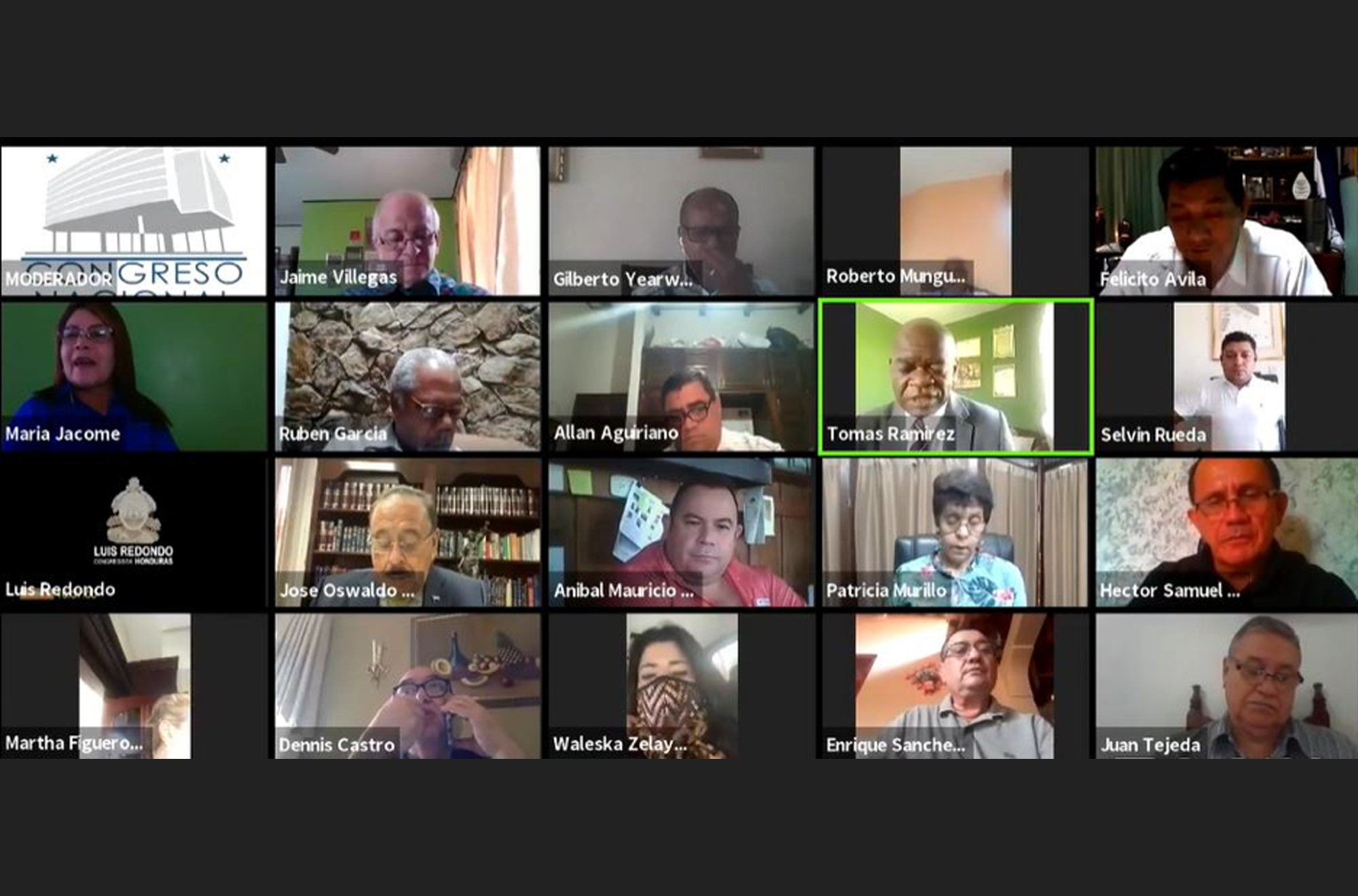
The outcome, with hindsight, was inevitable; hope was misplaced. Abortion is already completely illegal in Honduras. The majority of members of the unicameral Congress decided that it should not only stay that way, but in perpetuity. They were reacting to Argentina. For good measure, at the last minute, they included a new clause prohibiting same-sex marriage forever as well. After making an unimpressive show of consulting only a few people and groups with different views for a few hours, they passed both amendments in committee and held an online debate in the full Congress the very next day, for less than half a day. Then they passed this atrocity of a bill. But did they?
The bill as voted on consisted of a clause banning abortion forever, reforming Article 67 in the Constitution, and one banning equal marriage forever, reforming Article 112.
You can listen to the “debate” here if you can bear it. The value of “la vida (life)” was emphasised with religious overtones by one speaker after another. But it was never about the life of a pregnant woman or girl, which was unmentioned and therefore discounted, nor about the loss of life from dangerous abortions, nor the quality of life of children after they have been born. Only unborn life was important to them, even sacred.
The total number of members in the Congress is 128. Oddly, we heard that the number of votes announced at the end of voting did not coincide with the number of deputies voting. Moreover, the bill was declared to have been passed with 84 votes, which is less than the 86 votes (two-thirds majority) required by law.
The text of the reform itself stipulates that to amend either of these two clauses in the Constitution in the future, the approval of three-quarters of the deputies will be needed. But it also says that even if the entire Constitution is amended, these clauses must not be removed. Here is the text (in rough translation):
ARTICLE 67 – “The practice of any form of termination of life by the mother or a third party of the one who is about to be born, whose life must be respected from conception, is considered prohibited and illegal.”
ARTICLE 112 – “The right of men and women, who have the quality of such naturally, to marry each other, as well as the legal equality of the spouses, is recognized. Only a civil marriage celebrated before a competent official and with the conditions required by law is valid. A de facto union is recognized between persons equally capable of contracting marriage. The Law indicates the conditions for the marriage to take effect. Marriage and de facto union between persons of the same sex is prohibited. Marriages or de facto unions between people of the same sex celebrated or recognized under the laws of other countries will not be valid in Honduras.”
“The provisions of Article 67 and Article 112 of this Constitution may only be amended by a majority of three-quarters of the members of the Plenary of the National Congress. These provisions will not lose force or cease to be fulfilled when they are supposedly repealed or modified by another constitutional reform. The legal provisions created after the effective date of this Article that establish otherwise will be null and void.”
Does this have legal, let alone constitutional validity? It takes away the power of decision-making not only from women, now and in the future, but also from future law-makers. We hope international law experts will take up this question.
Somos Muchas (We Are Many), a coalition of women and women’s groups who work for social justice for women, wrote a statement in three languages asking for signatories in solidarity, in protest against this law reform. We published this call in the Campaign newsletter on 20 January, and along with the IPPF and many others, shared it on various listserves. Well over 400 abortion rights, women’s rights, INGOs and other civil society groups signed it in less than 48 hours, the great majority of whom are groups in Latin America, who filled eight of the 12 pages of signatories.
Yesterday was a terrible blow for the women and girls of Honduras, but Somos Muchas remain committed to changing the abortion law in Honduras for the better, and challenging the validity of both constitutional amendments.
by Marge Berer (any errors are my own)



